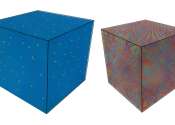Boneyard airplane sees new life as a NASA X-66 simulator
NASA's X-66 aircraft, the centerpiece of its Sustainable Flight Demonstrator project, is taking the term "sustainable" to heart by reusing an old MD-90 cockpit as a base for its new X-66 simulator.
Jul 23, 2024
0
11









